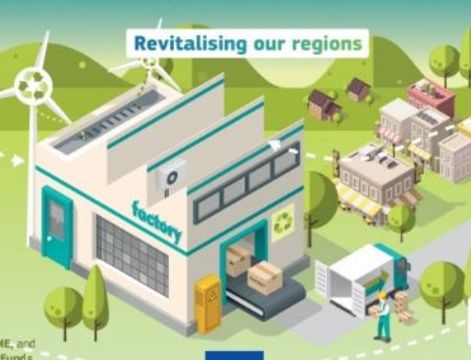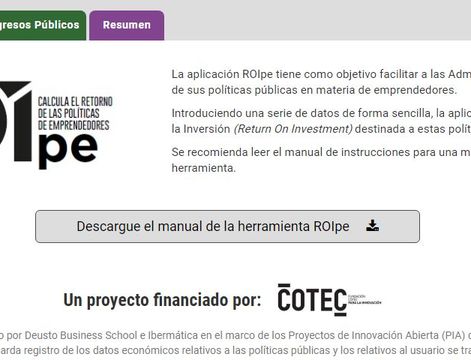ROIpe. Return Of Investment for Entrepreneurship Policies / Castille and Leon, Spain
App that allows Public Administrations evaluating the impact of their policies regarding entrepreneurs and entrepreneurship as well as the impact that all these programs have towards their beneficiaries and the society.
Strategy background
ROIpe is a tool developed by Deusto Business School and Ibermática and funded by Cotec. This is an online application that allows Public Administrations evaluating the impact of their policies regarding entrepreneurs and entrepreneurship as well as the impact that all these programs have towards their beneficiaries and the society. This online app is currently used by three public administrations in Spain, i.e. Burgos, Logroño and Canarias.
The ROIpe result is a ratio that shows how each euro spent on actions to support entrepreneurs’ returns to the public purse in the form of taxes, social contributions and non-compulsory income in a given period.
Practical implication for the business sector i.e. concrete case how it affects/might affect a business
Why it is important to measure Social Impact and what advantages it can offer to entrepreneurs:
- Allows to present tangible results and impact indicators.
- Allows monitoring the progress of the expected impact.
- Facilitates access to finance. Funders, whether they are social investors or donors, want to channel their money to the enterprise, program or project that has the best balance between social and economic return.
- Allows governments and public administrations to demonstrate that they have channelled public money to projects that have a clear social return.
- Allows social entrepreneurs to demonstrate all the benefits of their entrepreneurship, either to society (using the media) or to their financiers and other actors who have contributed directly or indirectly to its success.
- Allows meeting the principles of responsibility and transparency as well as addressing the citizens’ concern for the proper use of public money and the need for rationality in the management of budget allocations.











